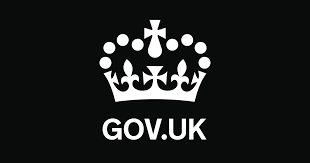The pandemic continues but, in England, government restrictions are being dropped and most free services, such as testing, and testing and tracing, are being discontinued. Responsibility is now focused on individuals. That was the gist of the prime minister’s announcement’s on Covid measures yesterday.
The PM was criticised by Nicola Sturgeon, the first minister in Scotland, for failing to consult. The devolved nations have their own Covid strategies but will be hit by the funding cuts.
Key points, applying in England:
Ending from this Thursday, February 24th
- The legal requirement to self-isolate following a positive test;
- self-isolation support payments;
- routine contact tracing;
- asking fully-vaccinated close contacts and those under 18 to test daily for seven days;
- the legal requirement for close contacts who are not fully vaccinated to self-isolate.
Adults and children who test positive will continue to be advised to stay at home and avoid contact with other people. After 5 days, they may choose to take a Lateral Flow Device (LFD) followed by another the next day – if both are negative, and they do not have a temperature, they can safely return to their normal routine. Those who test positive should avoid contact with anyone in an at risk group, including if they live in the same household.
There will be new guidance, setting out the precautions that those who live in the same household as someone who has COVID-19, or who have stayed overnight in the same household, are advised to take to reduce risk to other people.
Ending from 1 April:
- Covid provisions for Statutory Sick Pay;
- free testing for the general public;
- advice to people who test positive to stay at home.
- From April people will be asked to be considerate to others, as they would if they had influenza.
Also from 1 April, the government will replace the existing set of ‘Working Safely’ guidance with new public health guidance. It “will consult with employers and businesses to ensure guidance continues to support them to manage the risk of COVID-19 in workplaces.”
Saving money is clearly an important objective in the changes. HM Treasury is reported to have over-ruled the health secretary’s desire for continued free testing. The PM said that the Testing, Tracing and Isolation budget in 2020-21 exceeded the entire budget for the Home Office and that the level of spending had to be curtailed. Testing cost £2 billion in January alone, he said.
The health and economic arguments for testing have been much debated. One consideration would be, what could industry do with that level of monthly investment support?
It is important to note that both the PM and health advisors were explicit – the pandemic is not over and may surge again, with a more dangerous variant than Omicron. (Elsewhere, it is believed that quarantine restrictions for visitors to China are expected to remain in place for at least a further year.)
We would welcome your views, which we can aggregate and share with members and feed into government. For example, will these announcements change your behaviour? Will you seek to replace paid-for testing with privately-funded testing?
Links: PM statement in Commons: https://www.gov.uk/government/speeches/pm-statement-on-living-with-covid-21-february-2022#:~:text=Mr%20Speaker%2C%20with%20permission%20I,a%20full%20and%20swift%20recovery.
Press conference: https://www.gov.uk/government/speeches/pm-statement-at-covid-press-conference-21-february-2022ends
Gov.uk updated guidance: https://www.gov.uk/government/publications/covid-19-response-living-with-covid-19

